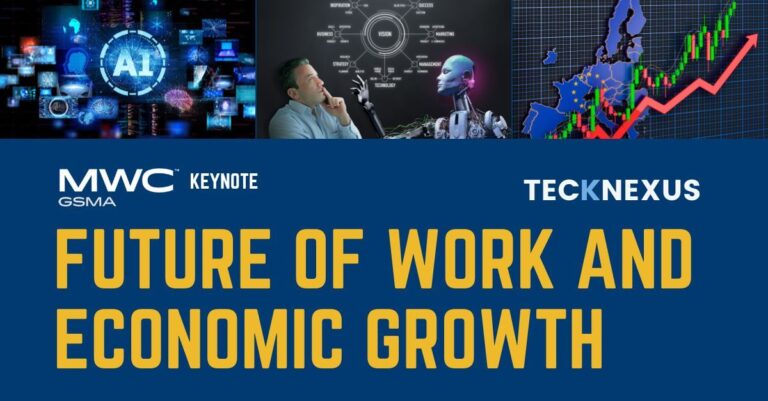AI Transformations in Telecom: Insights from AWS and Altman Solon
The telecommunications industry is rapidly evolving, driven by advancements in artificial intelligence (AI). A recent study by AWS and Altman Solon sheds light on AI’s transformative potential within this sector. The study surveyed over 100 senior business leaders from Tier 1 communication service providers (CSPs) across the U.S., Western Europe, and Asia Pacific, revealing key insights and trends.
AWS Insights on High-Impact AI Applications in Telecom
According to the survey, network-related AI applications are considered the most valuable. One significant use case involves optimizing massive MIMO radio beams, which improves network efficiency and reduces operational costs. AI-driven digital twins are also gaining traction, offering continuous automation and real-time insights into network performance. Digital twins, in particular, process data from radios and the core network to provide a near-real-time view of network operations, facilitating better decision-making and proactive maintenance.
GenAI for Improved Telecom Customer Interactions
Generative AI (GenAI) is particularly promising for customer service applications. The study highlights that customer chatbots are the most widely adopted use case, with 63% of respondents implementing them in production. These AI-driven chatbots enhance customer experience by providing human-like interactions and reducing the need for human intervention in routine queries. Contact center documentation and guided employee assistance are also emerging as high-value applications. These use cases improve customer satisfaction and drive operational efficiencies by automating repetitive tasks and providing real-time support to customer service representatives.
Ensuring Data Security and Governance in AI Implementations
Despite the enthusiasm for AI, CSPs emphasize the importance of data security and governance. Integrating data siloes and maintaining robust governance frameworks are critical for ensuring compliance and protecting sensitive information. The study indicates that data governance and ownership are the greatest gaps, with many CSPs focusing on establishing clear data management principles and policies. Effective data governance is essential for leveraging AI technologies while adhering to regulatory requirements and maintaining customer trust.
Adoption Trends and Future of AI in Telecom
The current adoption rate of generative AI use cases averages 19%, with significant growth expectations. By 2025, CSPs anticipate a substantial increase in AI spending, with 45% projecting their AI investments to rise to 2-6% of their total technology spend. This reflects a growing confidence in AI’s ability to drive innovation and efficiency in telecom operations. North American CSPs lead in adoption, followed closely by European counterparts, while APAC lags slightly due to perceived limitations in non-English language models and lower data capabilities.
AI in Telecom: Key Takeaways from CONNECT(X)
At the recent CONNECT(X) conference in Atlanta, industry leaders further emphasized the impact of AI on telecom. Ross McWalter, Head of Telecom Applications at AWS, shared insights from their extensive survey. He noted that initial AI use cases focused on natural language processing for internal applications, allowing telcos to refine their AI capabilities before deploying them externally.
GenAI Solutions for Telecom Contact Center Efficiency
One prominent discussion at CONNECT(X) revolved around the use of GenAI in contact centers. McWalter highlighted the potential for AI to reduce operational costs and enhance product sales through personalized recommendations. Drawing parallels with Netflix’s success in using AI for personal recommendations, he suggested that similar approaches could significantly boost telecom revenues. AI-driven personalization can provide tailored service recommendations and promotions, thereby enhancing customer engagement and driving sales growth.
AI-Driven Network Optimization Strategies
The conference also underscored the value of AI in network optimization. Gerardo Giaretta from Qualcomm Technologies discussed the application of AI in network planning and the operation of massive MIMO radio beams. AI’s ability to predict traffic loads and optimize beam steering can lead to significant cost savings and improved network performance. Qualcomm’s Edgewise solution, for instance, orchestrates radios and predicts traffic loads to prevent surges or faults, ensuring smoother network operations and enhanced user experiences.
Virtualization and Cloudification: Paving the Way for AI in Telecom
Telecom operators have been virtualizing and cloudifying their networks for several years. This movement is a critical step toward integrating AI into telecom networks. Giaretta noted that many operators are pursuing virtualization and cloudification as foundational steps to bring AI capabilities into their networks. This shift not only improves network flexibility and scalability but also reduces operational costs. By leveraging cloud-based AI solutions, operators can efficiently manage network resources, optimize performance, and quickly adapt to changing demands.
Optimizing Data Capabilities for AI in Telecom
A data-centric approach is pivotal for successful AI integration in telecom. The survey by AWS and Altman Solon highlights the need for CSPs to enhance their data capabilities. This involves centralizing data management, ensuring data quality and integration, and modernizing data infrastructure. Leading CSPs are adopting cloud-based data architectures to handle large volumes of structured and unstructured data, facilitating seamless AI deployments. Moreover, data proficiency within organizations is crucial. CSPs with advanced analytics and AI capabilities are better positioned to leverage AI for both operational efficiencies and revenue generation.
AI Model Strategies: Off-the-Shelf vs. In-House for Telecom
Most CSPs prefer using off-the-shelf generative AI models, with plans to train these models using proprietary internal data. The debate continues on the best approach to model customization, with CSPs exploring both fine-tuning and prompt engineering/context learning techniques. Off-the-shelf models offer a quicker path to deployment, while fine-tuning and context learning provide tailored solutions that better address specific telecom needs. The choice between these approaches depends on factors such as cost, resource availability, and the complexity of the use cases.
AI in Telecom: Future Trends and Opportunities
Generative AI is poised to transform the telecommunications industry, offering new opportunities for innovation and efficiency. CSPs are investing in data infrastructure modernization and exploring managed service platforms to accelerate AI adoption. As technology evolves, the focus will be on balancing cost, performance, and regulatory compliance to maximize the benefits of generative AI in telecom. Managed service platforms and Model-as-a-Service (MaaS) providers are emerging as key enablers, offering scalable AI solutions without the need for extensive in-house development.
Harnessing AI for Telecom: Final Insights
AI is set to revolutionize the telecommunications industry, with both current implementations and future prospects showcasing its transformative potential. Insights from AWS, Altman Solon, and industry events like CONNECT(X) highlight the diverse applications and benefits of AI in telecom. By understanding the relative risk and technical complexity of adopting generative AI, CSPs can better navigate the challenges and capitalize on the transformative potential of this technology. As CSPs continue to invest in AI, focusing on data security and governance will be essential to unlocking the full potential of these technologies. The fusion of AI and telecom is not just an innovative step but an imperative one for staying competitive in a rapidly evolving digital landscape.



















